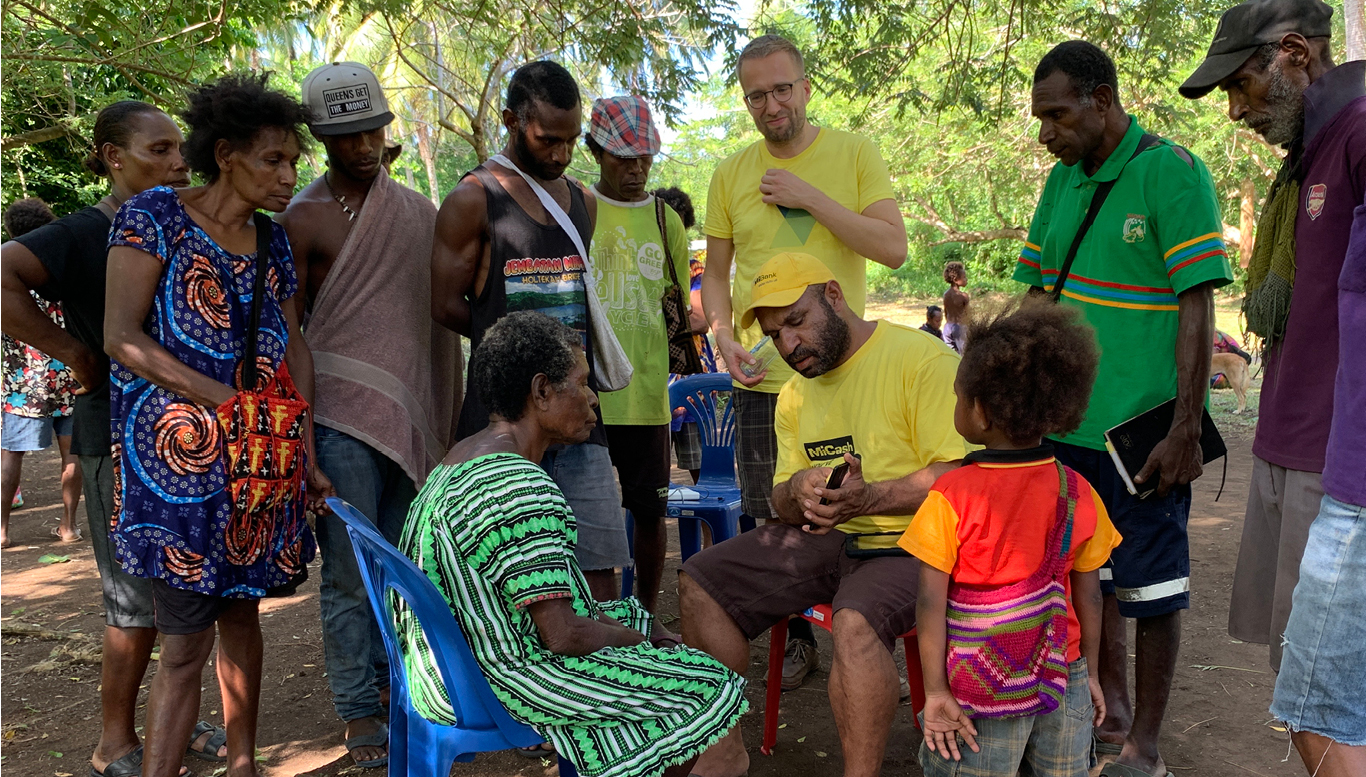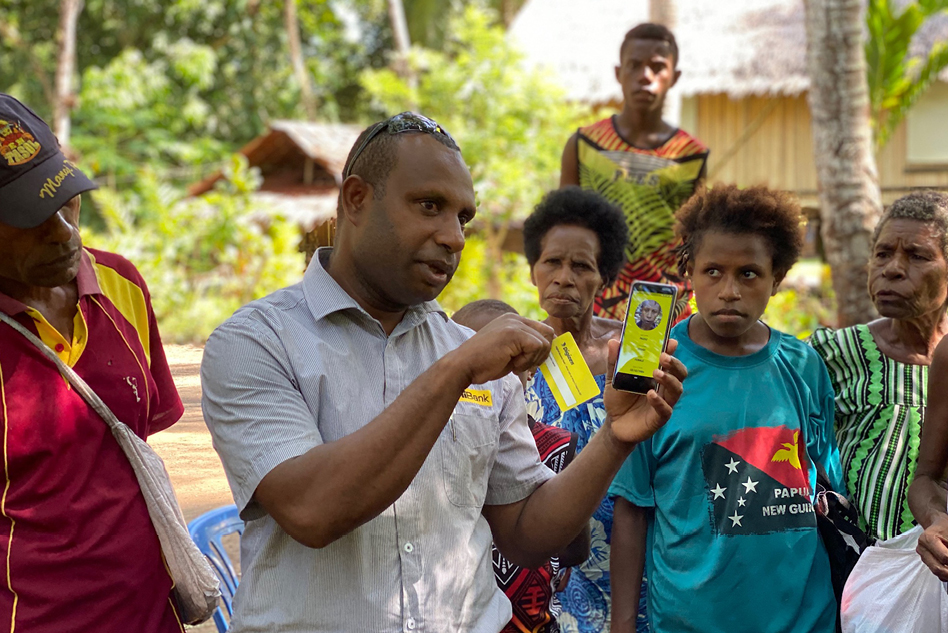Electronic identification brings banking services to remote villages in Papua

Finnish company Digizen has developed digital authentication that enables bank accounts to be opened in poor rural areas of Papua New Guinea. Finnpartnership’s support accelerates the commercialisation of the innovation.
A large part of Papua New Guinea’s population lives in rural areas where access is difficult and remote villages are out of reach of mobile phone networks. To address these challenging conditions, Finnish company Digizen has developed a digital authentication service. Digizen ID allows people to establish a verified identity, which in turn enables them to open for example a bank account.
Kimmo Koivisto, CEO of Digizen, explains that it all started a few years ago with a hackathon event organised by the Asian Development Bank (ADB). The event invited software developers to find ways to enable people in the most vulnerable positions to obtain a verified identity. “We are a team of four geeks who had, among other things, won the Slush hackathon three times. The team also had experience in digital identity development,” Koivisto tells.
Great need for digital authentication
Digizen won the ADB competition and received funding from the development bank to develop and test a digital authentication service. The bank’s experts also provided sparring support for the development. “Key part of the work were the joint research missions to Papua New Guinea. They provided us with essential information about people’s needs and the environment in underdeveloped villages,” Koivisto says.
The need for a new type of identification is urgent, as very few people, especially in rural areas, have an opportunity to obtain a traditional identity card. To get one, you need to have for example a birth certificate or a paper signed by a village elder. And even if the necessary documents can be obtained, applying for an identity card often involves a complicated and expensive journey to the provincial capital which prevents many from applying it.
“To overcome these challenges, we redesigned the application and establishment of a verified identity. Instead of a person, the responsibility is shifted to a trained bank officer who travels to the village, collects proof of identity and issues an electronic ID card on the spot.”
A Digizen ID is a smart card with the necessary information stored on a chip. No internet connection is required to use the card for identification. This allows a person to open a bank account, for example, with a bank representative directly in the village.

Finnpartnership’s support for commercialisation
According to Koivisto, Digizen ID can be compared to Finnish bank IDs. In addition to opening and using a bank account, it can be used for other services requiring strong authentication. For the roll-out of Digizen ID, it is significant that the Central Bank of Papua New Guinea approved it after a test period. Thus, the ID can be used officially for digital identification.
Koivisto says that the support of the prestigious ADB has been very helpful. It has facilitated the establishment of contacts with the Central Bank of Papua New Guinea and banks in the country that might be interested in using the Digizen service.
ADB’s financial support covered the development and testing phase of the service. According to Koivisto, the commercialisation phase of the service then got off to a good start with the help of Finnpartnership’s Business Partnership Support. “With Finnpartnership’s support, we were able to carry out initial studies and set up a company in Papua.”
Goal to expand to other countries
According to Koivisto, the main challenges have been related to the difficult environment in Papua New Guinea. Digizen has been testing its service in the northern province of East Sepik, where scattered villages are poorly connected by road and telecommunications. Rural mobility is also hampered by widespread crime.
At the testing phase, two microcredit banks have been using Digizen’s solution. The number of users in the villages of East Sepik has been around 2500. “We are currently negotiating with new banks to introduce a digital authentication service. Once we have enough contracts, we will start producing smart cards and scaling up the business.”
Koivisto explains that Digizen is simultaneously exploring other potential countries where the service could be launched. The company has received Tempo funding from Business Finland for this study. “There are other countries in the Pacific region where there is a need for the service. However, compared to Papua, the populations are small. In Asia, for example in Laos, digital identification is not yet available. But the greatest demand for the service would be in Africa,” Koivisto tells.
Images: Digizen Oy
Share on social media


